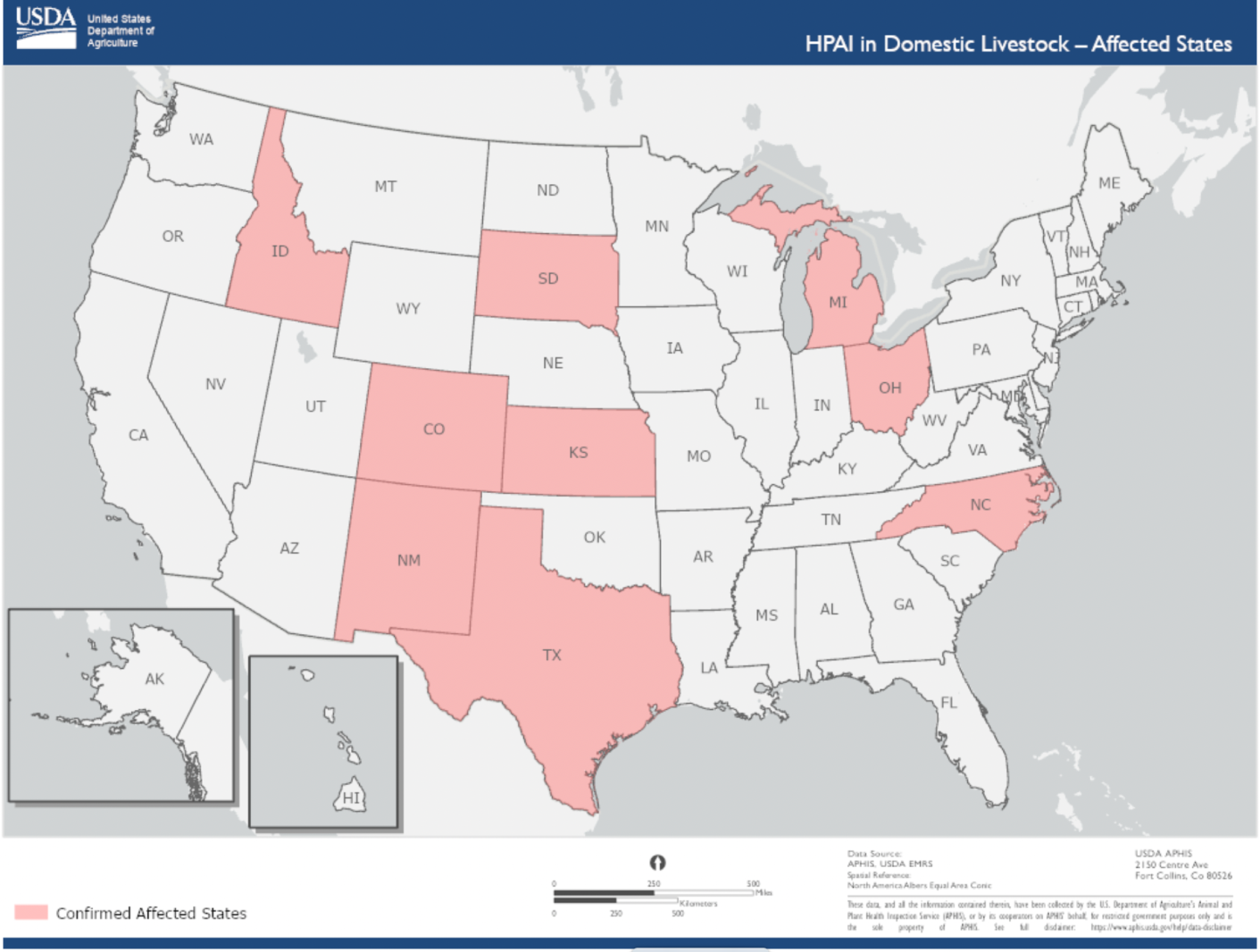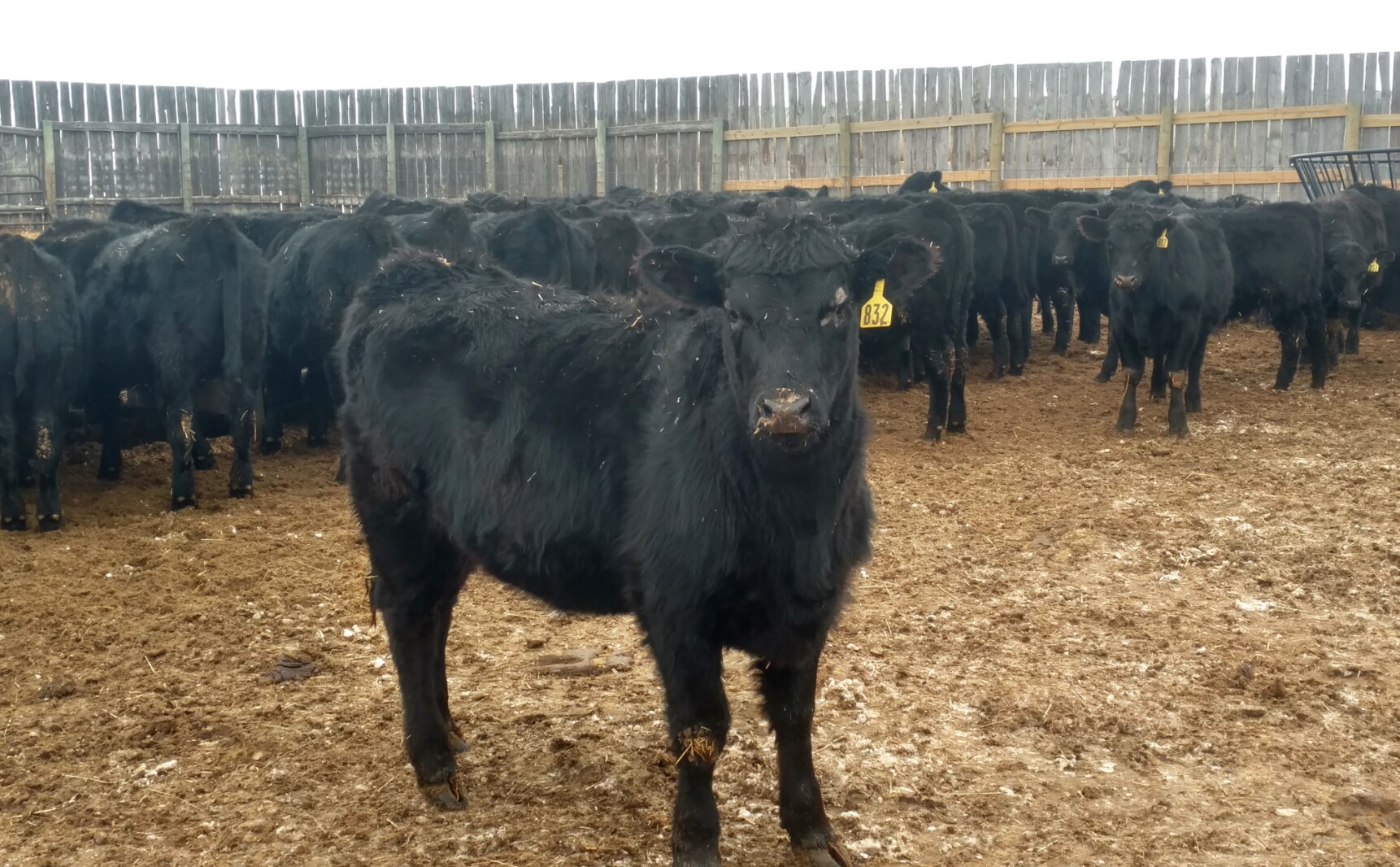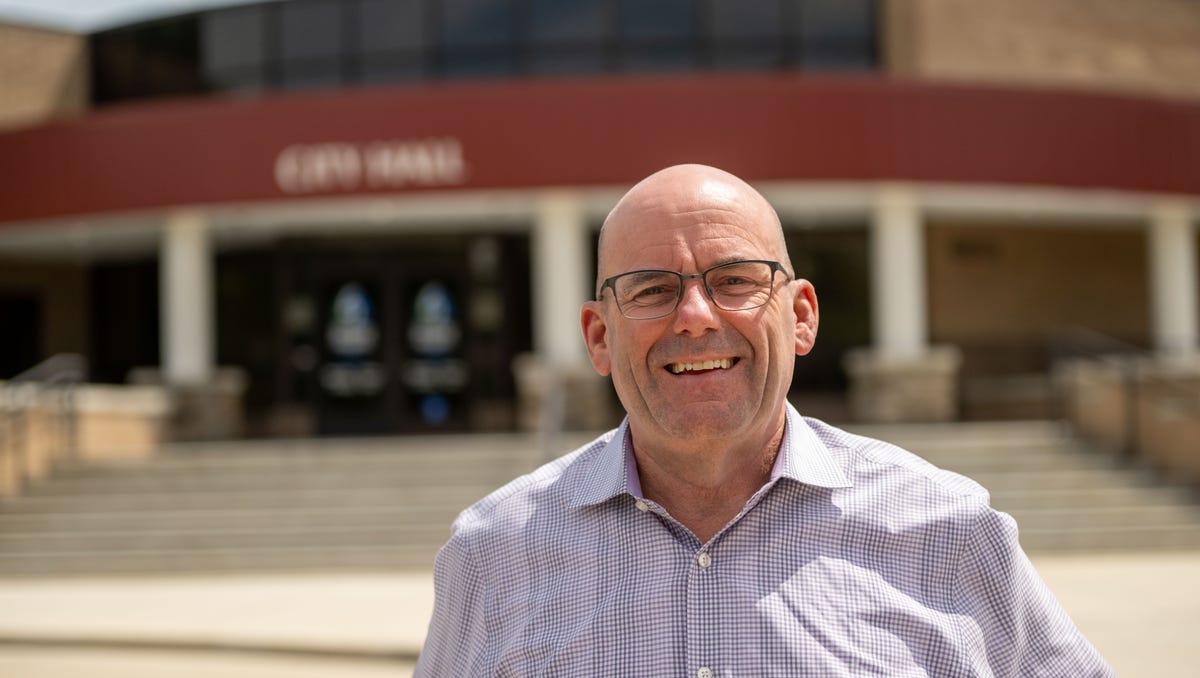North Dakota
Summit, in second attempt at permit, touts economic benefits of carbon pipeline

BISMARCK — Summit Executive Vice President Wade Boeshans cited Summit Carbon Solutions paying more than $14 million annually for electricity to operate its carbon capture and storage project as an economic benefit to North Dakota, but SuAnn Olson had a different reaction.
“Where is this power going to come from?” asked Olson, a state representative who lives near the carbon pipeline route north of Bismarck. “We’re very quickly coming to a time when the power supply is not going to keep up.”
Testifying on Earth Day, witnesses advocating for the Summit Carbon Solutions carbon capture pipeline emphasized economic benefits to North Dakota, making little mention of environmental benefits as a second round of Public Service Commission hearings on the pipeline began Monday, April 22 in Mandan.
The PSC denied Summit a pipeline route permit last year. The three-person PSC agreed to allow a rehearing on Summit’s application, giving Summit the chance to address deficiencies cited in the permit denial — including changing the route around Bismarck.
Kyle Martin / For the North Dakota Monitor
To open the hearing, Administrative Law Judge Hope Hogan outlined that the hearings should show that the project will have minimal adverse effects on the environment and people of North Dakota and be a good use of resources.
The Summit rehearing started with Dan Pickering of Pickering Energy Partners in Houston who touted the potential economic benefits to North Dakota.
“There’s a potential to at least support, if not enhance, the price of corn, which would then flow through to farmers here in the state of North Dakota,” Pickering said.
Tharaldson Ethanol is so far the only ethanol plant in North Dakota signed on to the project that would capture carbon emissions from 57 ethanol plants across five states.
Boeshans of Bismarck noted that about half the corn in North Dakota is sold to ethanol plants. Tharaldson Ethanol, near Casselton, buys 15% to 20% of the crop, he said.
Summit’s plan is to store the carbon underground northwest of Bismarck but Pickering testified about potential industrial uses of carbon dioxide, including enhanced oil recovery in North Dakota, the nation’s No. 3 oil-producing state.
“With a carbon infrastructure that could potentially develop in North Dakota, more carbon coming into the state creates more opportunities for the energy business to enhance their recovery,” Pickering said.
Summit moved its route to give a wider berth to the city of Bismarck. The original route had drawn objections from property developers and others as being too close to the city.
When public testimony began, residents near Baldwin north of Bismarck testified about being concerned about the pipeline that will run near, but not across their property.
“I see nothing but cost for North Dakota,” Lynette Dunbar said.
She cited the potential for rising electric rates and how a leak or rupture could affect her family and livestock.
Karl Rakow of Bismarck noted the 2022 rupture of a CO2 pipeline in Satartia, Mississippi, that sickened dozens of people. He said the plume from the rupture drifted 16 miles and the pipeline is about nine miles north of Bismarck.
Summit executives said in written testimony it considered having the pipeline cross the Missouri River south of Bismarck on its way to a carbon storage area northwest of Bismarck.
Chief Operating Office Jimmy Powell said potential routes included the Dakota Access pipeline corridor, but he said the company could not find a viable route.
Powell noted environmental and cultural constraints on a southern route and “the impact to Tribal lands in the area south of Bismarck.”
Powell testified that the reroute added 55 new miles in North Dakota and is about 12 miles longer than the previous route.
In miles added north of Bismarck, Powell said about 42% of the route has been obtained through voluntary easements.
Overall in North Dakota, 81% of the pipeline miles have been acquired through voluntary easements and 79% of the landowners have agreed to allow the pipeline through their land.
Without a voluntary easement, Summit could resort to using eminent domain, a legal process to force landowners to provide right-of-way. Potential use of eminent domain has been a main point of protest for pipeline opponents.
State Rep. Mike Brandenburg, R-Edgeley, said there are about 113 miles of pipeline set to run through his district. He is also a corn grower and said he has become convinced that North Dakota agriculture needs the pipeline.

Kyle Martin / For the North Dakota Monitor
Brandenburg noted that Canada, a large export market for U.S. ethanol, has adopted a low-carbon fuel standard that will make it difficult for North Dakota ethanol producers to sell into that market.
“Some people want nothing to do with it and that’s their right,” Brandenburg said.
Ken Huber of Bismarck said in reply to Brandenburg, “We are not willing to give up our safety for the price of corn.”
The PSC had reserved a room at the Baymont Inn in Mandan for the entire week but it appears hearings will wrap up in one day.
There also will be hearings May 24 in Wahpeton and June 4 in Linton.
This story was originally published on NorthDakotaMonitor.com
______________________________________________________
This story was written by one of our partner news agencies. Forum Communications Company uses content from agencies such as Reuters, Kaiser Health News, Tribune News Service and others to provide a wider range of news to our readers. Learn more about the news services FCC uses here.

North Dakota
North Dakota raw milk producers cautious as federal authorities raise concerns

BISMARCK — Raw milk from North Dakota dairy cows carries a low risk of avian flu contamination, local producers say, but they are still increasing precautions.
The so-called bird flu has been detected in dairy cows in nine other states,
including South Dakota,
and the Food and Drug Administration has advised against drinking raw milk.
This issue comes less than a year since
the North Dakota Legislature lifted a rule against selling raw milk in the state,
though sales can only be at the direct consumer level, not to wholesale or retail outlets or across state lines.
There are currently about two dozen raw milk producers in the state.
One is Peter Bartlett of Bartlett Farms, Bottineau, who said he received a cautionary notice from the North Dakota Milk Producers Association. The notice advised caution when buying cows and to keep a close watch for illness in the herd. He said customers are not deterred.
“A pasture-based farm that’s not confining its animals in more close confinement like a conventional dairy would be a lot less susceptible,” Bartlett said.
Bartlett said he already follows three levels of safety protocols to ensure the health of his cows.
Since the restrictions were eased on sales of raw milk last year, Bartlett has seen a steady and growing interest from consumers.
“In the past six months, we seem to have had almost twice as many inquiries about milk,” he said. “So that’s a good sign. I think that now that the law passed, people look at it as a valid option.”
Ty Petersen of Bev’s Best Dairy, Monango, agrees that larger dairy farms with confined cows are more at risk from transmission and that smaller operators have a better grip on the health of individual animals.
He said he isn’t greatly concerned about avian influenza infecting his cows.
“Just being a fussy producer helps a lot, that’s a big part of it, and you know just being around them cows all day you notice stuff lickety split.”
Ava Brokaw of Brokaw Ranch, Kulm, said she is very meticulous about the cleanliness of her cows and quality of her raw milk.
“If I question anything, I dump it,” she said. “I would never sell anything where I questioned whether my cow was sick or not.”
Brokaw said she’s had “a ton of people reach out” since the restrictions were lifted, and people should do their research on whatever it is they are consuming.
“I’ve got kids and I want to make sure that everything that I’m giving them is good, you know, so I read up on the risks on it,” Brokaw said. “But for us, we’ve had more problems with store-bought milk than raw milk.”
North Dakota’s Department of Agriculture regulates production of pasteurized milk, but not raw milk.
The North Dakota Department of Health and Human Services can only offer guidance, according to Heather Steffl, communications manager of the Public Health Division.
“Pasteurization is the safest choice,” Steffl wrote in response to an inquiry from the North Dakota News Co-op.
State veterinarian Ethan Andress said consuming raw milk has “inherent risks” aside from the possible transmission of highly pathogenic avian influenza.
“There are organisms that contaminate raw milk that have the potential to cause people to get sick and occasionally die.” He said it’s the same risk for all raw food, from oysters to meat.
Andress advised raw milk producers to minimize contact with wild birds and to ensure feed is protected from exposure to wild birds because it is hard to know if they are infected.
Milk production is a key indicator of a cow’s health. “The most common sign (of illness) is a drop in milk production,” Andress said.
But even with precautions, some infected cows may not show signs of sickness.
“I think the most frustrating part of this is the asymptomatic part, that some of these cows have an infection but aren’t getting sick,” Andress said. “Just like people when we get influenza, you have varying levels of how bad people get sick and the same thing occurs in cows.”
The closest the avian influenza virus H5N1 has been found in dairy cows is in South Dakota. Other states where it was detected are Colorado, Idaho, Kansas, Michigan, New Mexico, North Carolina, Ohio and Texas.
There have been no cases of avian influenza detected in North Dakota, according to the North Dakota Department of Agriculture. Most cases from 2023 occurred in the fall.
Transmission risks still undetermined
Federal officials believe the virus is spreading among cows due to contact with milk from other infected cows but that further testing is needed.
It is also unknown if humans can contract the virus through consuming raw milk from infected cows.
Pasteurization of milk inactivates the virus, according to the FDA. The agency has tested commercially produced pasteurized milk and other dairy products in 38 states and found no live, infectious virus in pasteurized milk.
A recent study published by the Center for Disease Control and Prevention found that cats that consumed raw milk from avian influenza-infected cows became sick and some died.
Dr. Angela Rasmussen, a virologist at the Vaccine and Infectious Disease Organization at the University of Saskatchewan in Canada, told NDNC that while “we don’t know if people can get H5N1 from drinking raw milk,” due to the high levels of viral loads, “it’s very much a possibility.”
Animals such as cats, dogs, and bears that eat dead birds have gotten diseased, and some died, from that consumption, Rasmussen said.
An FDA statement from May 1 said the agency is continuing to test samples of pooled raw milk routed to pasteurization and processing for commercial use. The FDA “advises strongly” against consuming raw milk and recommends the industry does not manufacture or sell raw milk or raw milk products.
The FDA has also recommended that precautions be taken when discarding milk from infected cows so it does not become a source of further spread.
This story was originally published on NewsCoopND.org
______________________________________________________
This story was written by one of our partner news agencies. Forum Communications Company uses content from agencies such as Reuters, Kaiser Health News, Tribune News Service and others to provide a wider range of news to our readers. Learn more about the news services FCC uses here.
North Dakota
Burgum orders flags at half-staff for fallen firefighters

BISMARCK — North Dakota Gov. Doug Burgum has ordered flags be flown at half-staff Sunday, May 5, in honor of fallen firefighters.
Burgum proclaimed Saturday and Sunday as Fallen Firefighters Memorial Weekend in the state. There are more than 300 volunteer and career fire departments in North Dakota “staffed by dedicated men and women selflessly serving their neighbors in times of need,” he said in a release.
Homeowners and businesses are encouraged to join government agencies in flying their flags at half-staff, the release said.
Our newsroom occasionally reports stories under a byline of “staff.” Often, the “staff” byline is used when rewriting basic news briefs that originate from official sources, such as a city press release about a road closure, and which require little or no reporting. At times, this byline is used when a news story includes numerous authors or when the story is formed by aggregating previously reported news from various sources. If outside sources are used, it is noted within the story.
North Dakota
Four Bismarck businesses featured on Free Comic Day

BISMARCK, N.D. (KFYR) – Every year on the first Saturday in May, comic book fans around the country gather at their local comic book stores for Free Comic Day.
When Comic Realms opened at 11 a.m., fans of all kinds rushed through the doors to get their free comic books.
The event featured four businesses: Comic Realms, Chakra Realms, Cafe Realms and Rhythm Records.
Comic Realms has been open since 2017. For the last four years, Free Comic Day has been used by the business as a fundraiser.
”How we do it here is you get five books for free, just for coming, whatever titles you’d like. And then for every $1 donation or a nonperishable food item that’ll go to the local food bank, you can get an extra five books. And then we cap it at a $5 donation, and then you can get all 48 titles if you’d like,” said Lesley Frohlich, owner of Comic Realms.
Located next to Comic Realms, Cafe Realms sells comic book-inspired drinks.
In honor of the event, the theme was Transformers, but customers can enjoy themed drinks outside of Free Comic Book Day.
”We have a Marvel list and then a DC list. All of your Marvel drinks are going to be more like your energy-based, like Redbull, and the DC, we decided to steer away from that and do like a dirty soda,” said Britney Frohlich, manager at Cafe Realms.
Lesley appreciates the support of the community the business has attracted and wants to return the favor with the funds and donations received.
“We have a really good community of people that support us, so we like to give back whenever we can,” said Lesley.
Attendants also had the chance to win a door prize and a print designed by Dylan Kahl.
Comic Realms, Cafe Realms, Chakra Realms and Rhythm Records collaborate often. Lesley says they like to support small businesses, as they are a small business as well.
Copyright 2024 KFYR. All rights reserved.
-

 World1 week ago
World1 week agoEU Parliament leaders recall term's highs and lows at last sitting
-

 Politics1 week ago
Politics1 week agoGOP lawmakers demand major donors pull funding from Columbia over 'antisemitic incidents'
-

 World1 week ago
World1 week agoHamas ‘serious’ about captives’ release but not without Gaza ceasefire
-

 Tennessee1 week ago
Tennessee1 week agoHow to buy JC Latham’s Tennessee Titans jersey after 2024 NFL Draft selection
-

 News1 week ago
News1 week agoBoth sides prepare as Florida's six-week abortion ban is set to take effect Wednesday
-

 Michigan1 week ago
Michigan1 week agoMichigan State football adds DT Brandon Lane from Stephen F. Austin
-

 Politics1 week ago
Politics1 week agoColumbia University’s policy-making senate votes for resolution calling to investigate school’s leadership
-

 Politics7 days ago
Politics7 days agoHouse Republicans brace for spring legislative sprint with one less GOP vote



















